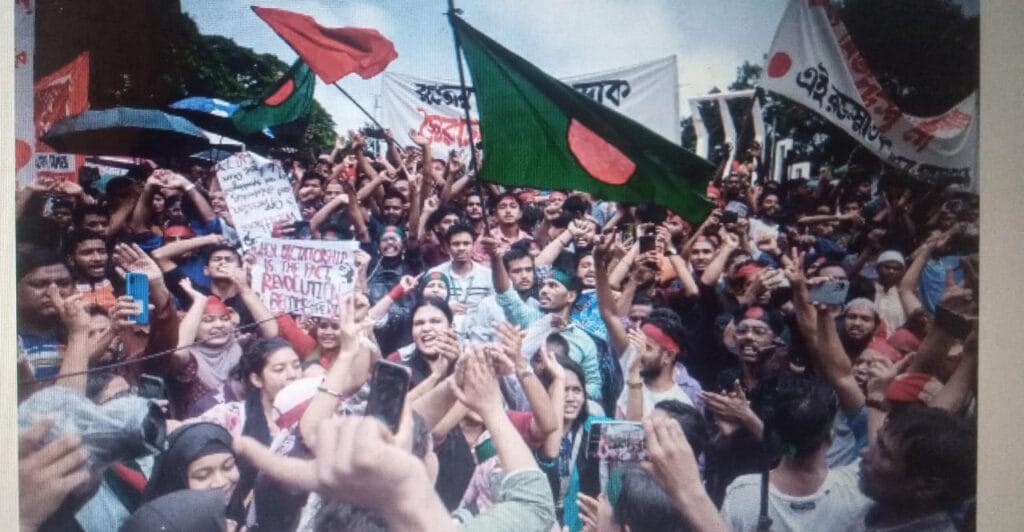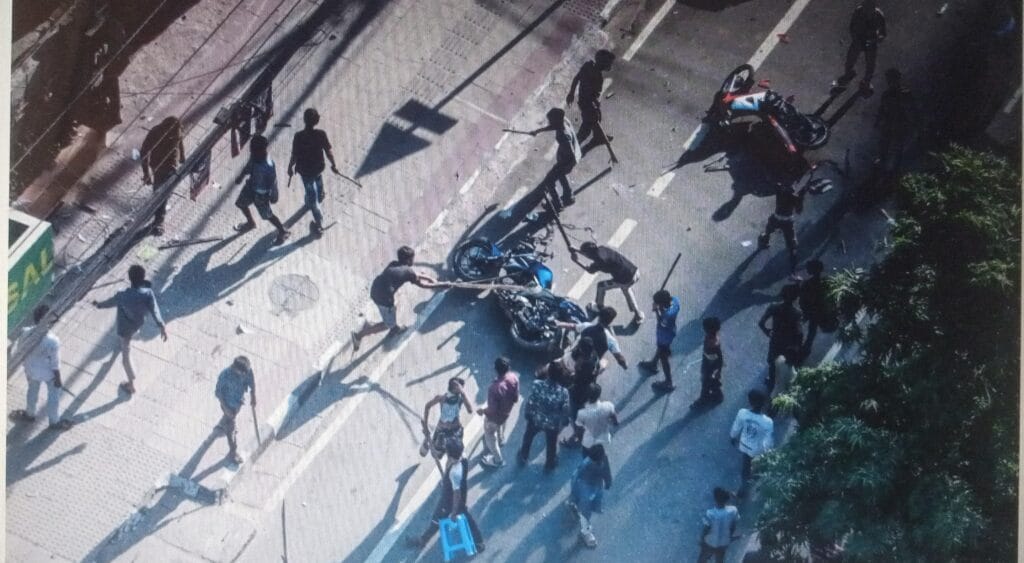What’s happening in Bangladesh?
The ongoing protests in Bangladesh started last month over government job quotas. For a long time, the protesters were in favor of the resignation of Prime Minister Sheikh Hasina and they were demanding that Sheikh Hasina resign. And the problem took hold when the top authorities cracked down and during this time unrest spread across the country . As a result of this chaos, unrest and violence, around 300 people have died so far.

30% of the jobs in Bangladesh are reserved for those who belong to military families or their relatives who fought in the 1971 war of independence from Pakistan. And opponents of quotas for jobs in the civil service say it is discriminatory and will not be tolerated. And at the same time, the protests that are taking place in Bangladesh have intensified this week, with clashes between students and supporters of the government and the armed forces increasing, and dozens of people have reportedly been killed and seriously injured. have been Police have used tear gas and rubber bullets on the demonstrators, which has led to large crowds of baton-wielding protesters gathering on the streets of the capital Dhaka and other cities on university campuses. Those who appear to be standing against injustice and will face any atrocities, if they are tortured or whatever, they will bear it.
Why protests begin?
The protest took place in early July in which university students peacefully protested the abolition of quotas for civil service employees. A third of the jobs are reserved for veterans of the 1971 war for independence from Pakistan and their relatives in Bangladesh .At the time, campaigners said the system was discriminatory and needed to be reformed, a demand that was largely met and the protest has since turned into a wider anti-government movement.
In Bangladesh, Ms. Hasina says that those protesting against her administration are terrorists and on the verge of destabilizing the country, and she describes this as her narrative.
The United Nations has called for an end to the violence and appealed to Bangladeshi politicians and police officers to exercise restraint.
The head of human rights, Volker Türk, has said in a statement on Sunday that the government should not torture those who participate peacefully in the protest movement and its The head of human rights, Volker Türk, has said in a statement on Sunday that the government should not torture those who participate peacefully in the protest movement and its۔ The plot in Bangladesh’s capital has raised fears of bloodshed across the country and turned into a campaign of defiance that has yet to show signs of abating.
Why are students protesting?
Many Bangladeshi students are calling for an end to the government’s quota system, which reserves more than half of the civil service posts for certain groups. In 1971, the soldiers and their relatives who fought for the independence of Bangladesh from Pakistan, 30% of the employees were reserved for them at that time. And many political elites in Bangladesh also belong to the same generation, in which Prime Minister Hasina is the daughter of Sheikh Mujibur Rahman.
The protesters say that the quota system is discriminatory and they are demanding merit-based recruitment
Maruf Khan, a Bangladeshi studying in Australia, has said that 500,000 to 600,000 people are competing for 600 to 700 government jobs and on top of that 56% quota is included. It is very difficult, this is not a favor۔

Unemployment is a major source of anger in Bangladesh, as more than 30 million people are out of work or education in a country of 170 million people. The quota system was scrapped after protests in 2018, but was reinstated by the High Court in June, declaring it unconstitutional and a nullity. Protesters also say that the quota system makes Bangladesh a second-class country because it benefits elites by birth who are connected to politics.
Why did protests escalate ?
These protests started from the University of Dhaka on July 1 and after that people started participating in street gatherings almost every day from all over the country and these protests gradually spread to other campuses and cities as well. They also started participating in rallies and road blockades Demonstrations escalated on July 15 when student protesters were attacked inside the campus of Bangladesh’s University of Dhaka. Clashes between the security forces and the protesters escalated and the situation became so bad that the Action Battalion had to be deployed.
What has government said?
These protests, which are intensifying, are a major challenge for Prime Minister Hasina, who has won the January elections for the fourth time in a row.
Prime Minister Hasina has announced a judicial inquiry into the killings and appealed to the protesters to wait until the court’s decision.
30% of the jobs in Bangladesh are reserved for those who belong to military families or their relatives who fought in the 1971 war of independence from Pakistan. And opponents of quotas for jobs in the civil service say it is discriminatory and will not be tolerated. And at the same time, the protests that are taking place in Bangladesh have intensified this week, with clashes between students and supporters of the government and the armed forces increasing, and dozens of people have reportedly been killed and seriously injured. have been Police have used tear gas and rubber bullets on the demonstrators, which has led to large crowds of baton-wielding protesters gathering on the streets of the capital Dhaka and other cities on university campuses. Those who appear to be standing against injustice and will face any atrocities, if they are tortured or whatever, they will bear it.
Prime Minister Hasina herself has said that I specifically appeal to everyone to wait for the verdict of the Supreme Court and I am very sure that our students will get justice from the High Court and they will not be disappointed. He said all these things to the news conference It is only about a quota, it is not a protest, now this protest has become more than that, in a simple quota protest, the government cannot even think of hurting the students, and the Eid of firing cannot even be imprisoned. This is the current fast of the government. And Imrana demonstrates the nature of maintaining power without a proper warning system
